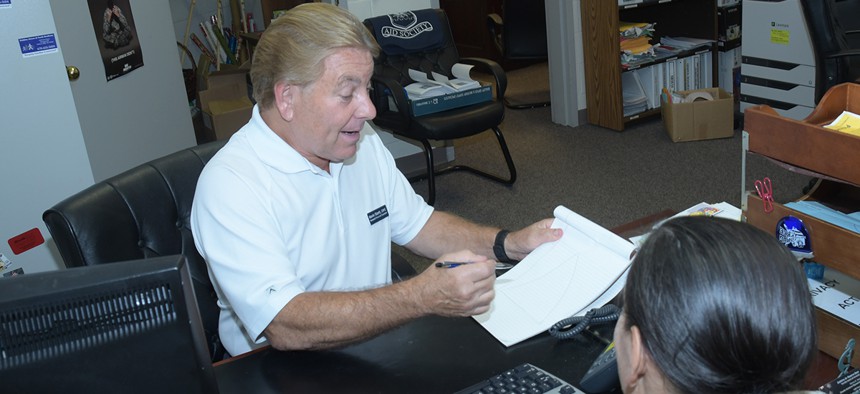
Dobbins Air Reserve Base
Do You Need a Financial Adviser?
Some questions to ask yourself before you sign up with one.
After conducting a webinar recently for the National Active and Retired Federal Employees Association called “Four Simple Steps to a Smooth Retirement,” I received dozens of requests for information about working with a financial adviser. I’m not a financial adviser myself, but I think it’s important to ask yourself the following questions before deciding to engage with one.
- Do you really need a financial adviser, or are you looking for financial education?
- If you had more confidence in the amount of retirement income you will have, would this satisfy your need for financial help?
- Do you have investments outside of the Thrift Savings Plan to manage?
I remember asking my late Uncle Steve whether he hired a financial adviser before he retired under the Civil Service Retirement System in 1978 after working for 30 years at Edwards Air Force Base in California. His response was, “I turned in my retirement application about 30 days before I turned 55 and I’ve been happily retired ever since.” He didn’t need to do any planning except living within his means and working a full career of federal service.
It’s not quite so easy under the Federal Employees Retirement System, since FERS involves three different retirement benefits administered by three different federal agencies. Each has different characteristics and rules regarding claiming your benefits. CSRS was designed as a single-benefit retirement plan that was meant to provide enough replacement of your pre-retirement salary to live a comfortable life after retirement.
In its simplest terms, the key question about ensuring an affordable retirement isn’t that different than it is in your working life: Will you have enough income to cover your expenses? This requires an understanding of the net income you will have once you apply for your retirement benefits. The amount of your net income will be determined not just by the size of your benefit, but decisions such as survivor elections, possible relocation after retirement, and whether you will begin to immediately withdraw from your retirement savings or continue to work part-time.
Remember, once you’re retired, you won’t receive pay raises, promotions, step increases or annual pay adjustments outside of the cost of living adjustments to benefits. So it’s important to determine your income needs accurately the first time.
You can get educated by attending a financial planning workshop at your agency if one is available or by enrolling in a retirement planning seminar in your area. It’s best to attend a session that is focused on federal employees, such as those offered by Management Concepts, Graduate School USA , and J.P McGehrin & Associates. You might also find courses offered at Federal Executive Boards located in large metropolitan areas such as Denver, Portland, and Minneapolis, to name a few. In many cases, this type of training may be all that you need to help you understand the various moving parts of your retirement.
You can also educate yourself by using federal resources such as the Office of Personnel Management, Thrift Savings Plan and Social Security Administration websites, and publications such as one issued by the Labor Department called Savings Fitness: A Guide to Your Money and Your Financial Future. There are also books that can help you learn how to plan your retirement, such as The Truth About Money by Ric Edelman and You’ve Earned It, Don’t Lose It by Suze Orman.
If you determine you need a financial adviser to work with you on an individual basis, remember that many of them are seeking a long-term relationship, not just a one-time fee to provide education. According to a white paper published by Investment News, 48 percent of financial planning firms have a minimum fee requirement, up from 44 percent in 2016.
To find an adviser that’s a good fit for you, be sure to interview more than one person. You should also do some homework to determine the advisers’ background and history in the financial planning business. Here are some helpful resources:
- Smart Check, Commodity Futures Trading Commission
- Investor.gov and Check Out Your Investment Professional, Securities and Exchange Commission
- Broker Check, Financial Industry Regulatory Authority
You might find an adviser who meets your needs. You might also find that all you require is a better understanding of your federal benefits so you can make your own financial decisions. If that’s the case, you might be able to get individual retirement counseling at your agency’s human resources office or through benefits specialists in the private sector.







